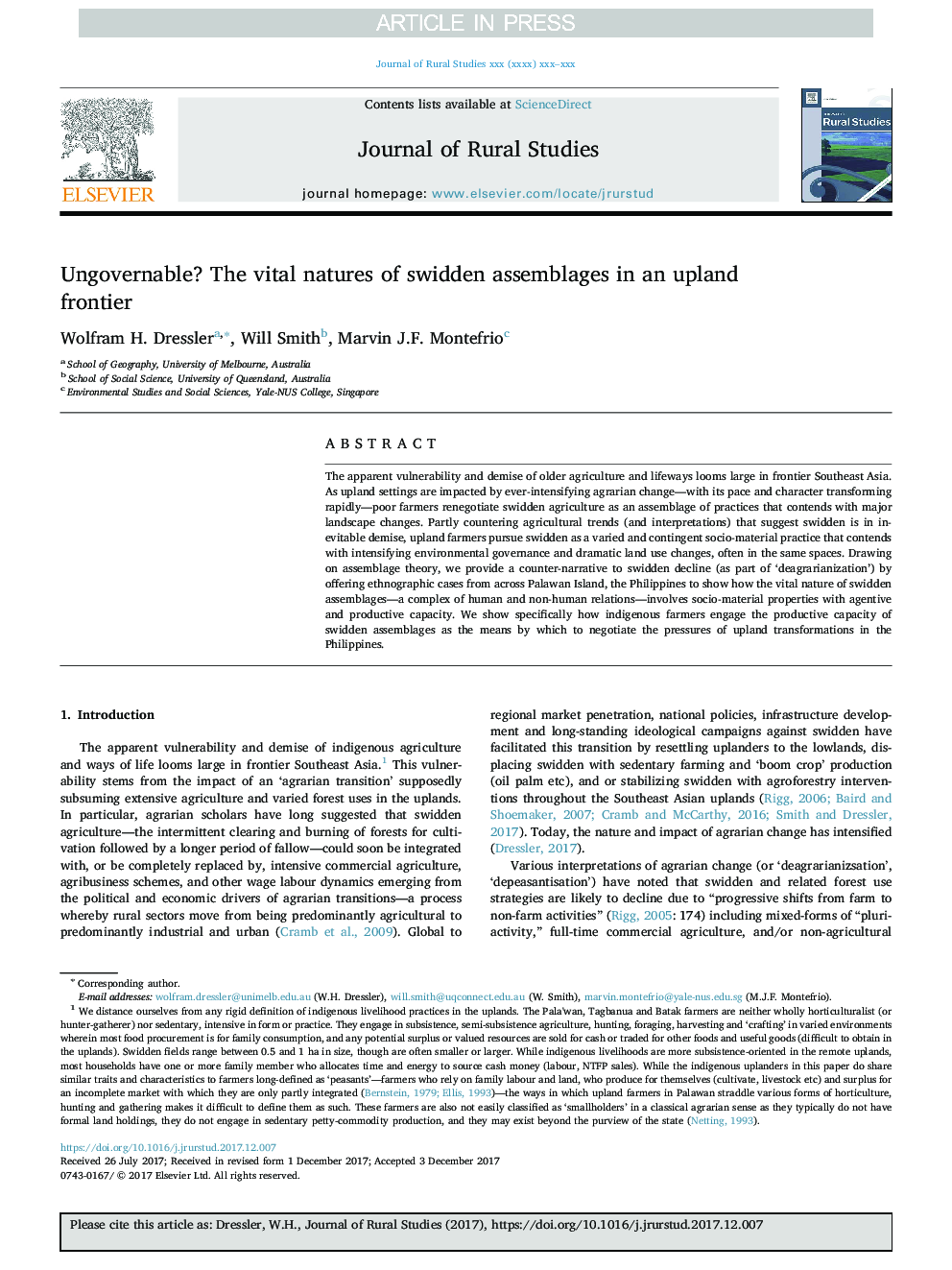| Article ID | Journal | Published Year | Pages | File Type |
|---|---|---|---|---|
| 6545263 | Journal of Rural Studies | 2018 | 12 Pages |
Abstract
The apparent vulnerability and demise of older agriculture and lifeways looms large in frontier Southeast Asia. As upland settings are impacted by ever-intensifying agrarian change-with its pace and character transforming rapidly-poor farmers renegotiate swidden agriculture as an assemblage of practices that contends with major landscape changes. Partly countering agricultural trends (and interpretations) that suggest swidden is in inevitable demise, upland farmers pursue swidden as a varied and contingent socio-material practice that contends with intensifying environmental governance and dramatic land use changes, often in the same spaces. Drawing on assemblage theory, we provide a counter-narrative to swidden decline (as part of 'deagrarianization') by offering ethnographic cases from across Palawan Island, the Philippines to show how the vital nature of swidden assemblages-a complex of human and non-human relations-involves socio-material properties with agentive and productive capacity. We show specifically how indigenous farmers engage the productive capacity of swidden assemblages as the means by which to negotiate the pressures of upland transformations in the Philippines.
Related Topics
Life Sciences
Agricultural and Biological Sciences
Forestry
Authors
Wolfram H. Dressler, Will Smith, Marvin J.F. Montefrio,
